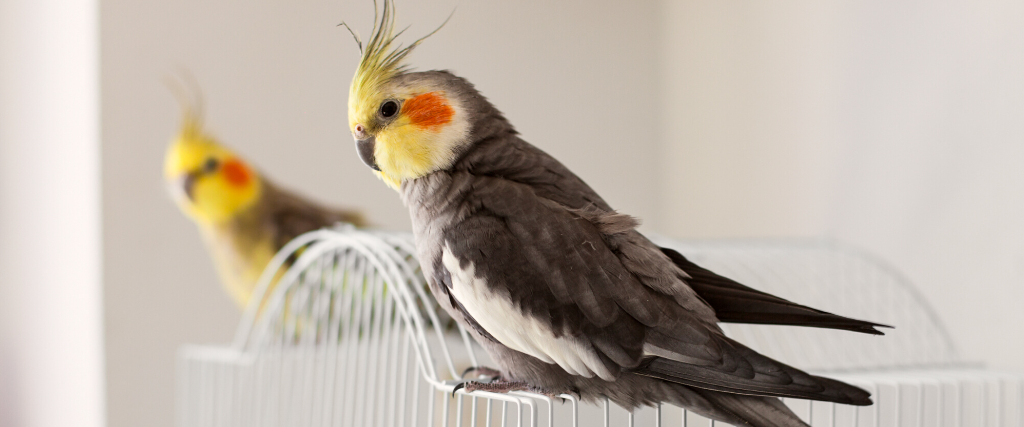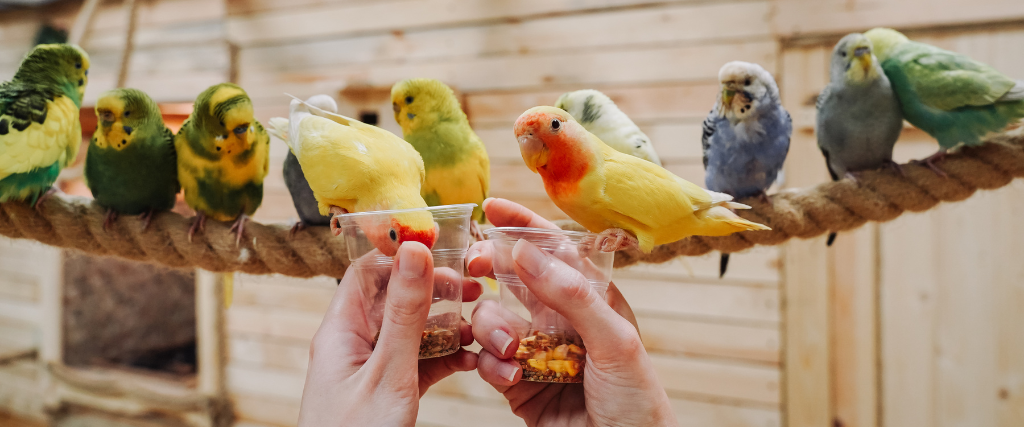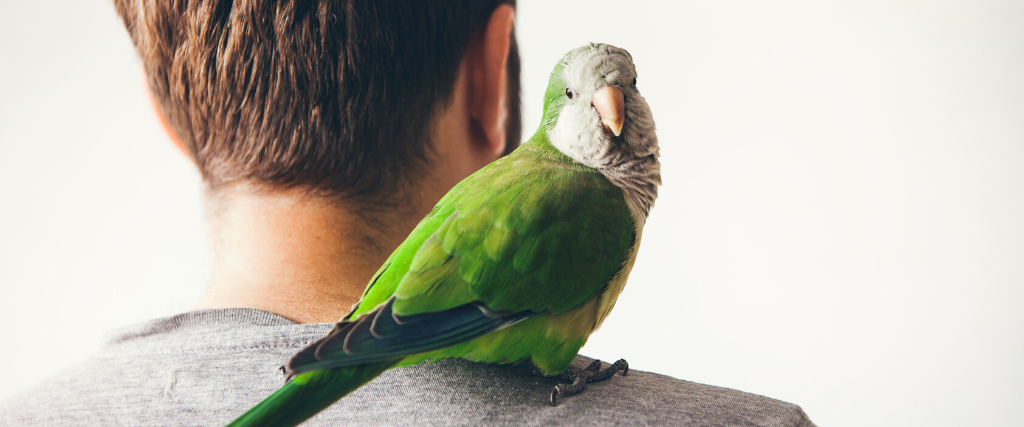As veterinarians, we understand that caring for a pet bird can be rewarding and challenging. Pet birds come in various sizes, colors, and personalities, each requiring a specific type of care.
If you are thinking about adopting a bird, we have the information you need! This article will share the five most common pet birds and the expertise required to care for them. We will also provide insight into their unique needs, including their diet, environment, and behavior. You can give the best care for your new feathered friend by understanding these requirements.
1. Parakeets
Parakeets, also known as budgerigars or budgies, are among the most common pet birds in the world. They are small and colorful, and you can train them to talk. Parakeets require a lot of attention and interaction from their owners. They are social creatures and enjoy the company of humans and other parakeets. Parakeets are active birds and need plenty of exercise.
2. Cockatiels
Cockatiels are another popular pet bird. They are friendly, social, and have charming personalities. Cockatiels can learn to whistle, sing, and talk. They enjoy attention and interaction from their owners and opportunities to fly and exercise.

3. Canaries
Canaries are popular pet birds because of their beautiful songs. They are relatively simple to care for and do not require as much attention as other pet birds. Canaries are also active and need frequent exercise.
4. Lovebirds
Lovebirds are small, social birds well-known for their affectionate behavior. They are active birds and enjoy receiving lots of attention from their owners. Lovebirds are also known for their unique mating behaviors, such as cuddling and preening.
5. Finches
Finches are small, energetic birds known for their beautiful songs. They are pretty easy to care for compared to other species and do not need as much attention as others. Finches are social creatures and enjoy the company of other finches.
Expertise Needed to Care for Pet Birds
Caring for a pet bird takes a significant amount of expertise. Pet birds have unique needs you must meet to ensure their health and well-being. To keep your feathered friend healthy and happy, you must provide them with a balanced diet, a comfortable environment, and plenty of attention and interaction.
In terms of feeding, pet birds typically need a balanced diet.
Your bird’s diet should include:
- Fresh Fruits
- Fresh Vegetables
- Pellets (similar to dog kibble)
- Seeds
Don’t go overboard on birdseed, though. It’s best to offer seed as an occasional treat rather than a staple of your bird’s diet. Avoid feeding them avocado, onions, and garlic, as these foods can be toxic to them. Birds also need access to fresh water at all times. Depending on which species you choose, their specific dietary needs may vary. Do your research before bringing a new feathered friend into your home!
Pet birds also need spacious cages to move around freely, and you’ll need to frequently clean your bird’s cage. Taller birds need tall cages that offer plenty of tail clearance, and smaller species require wide cages with enough room to spread out. Choose an escape-proof cage made of non-toxic, sturdy materials with bars spaced proportionately to the bird(s) inside. Line it with a soft and easy-to-replace material like newspaper or paper towels for comfort and easy cleanup. Pet birds also need toys and perches to keep them entertained and to encourage exercise. It would be best if you also planned to let your bird outside their cage for at least a few hours daily.
Another critical component of caring for a pet bird is understanding its behavior. Birds have complex social structures and communication methods. They require much attention and interaction from their owners to remain mentally stimulated and happy.
Pet birds also need regular grooming. They require nail and beak trims, so learn how to do these yourself or find a store in your area that offers these services. If you don’t want your pet bird to be able to fly away, they can also have their wings trimmed, which prevents them from flying upward. This service is typically also offered at pet stores that sell birds. A cuttlebone should be available inside the cage so a bird can file its beak regularly.
Like any pet, birds need veterinary care. As a pet bird owner, you must be aware of the signs of illness in your bird. Birds are masters of hiding their illness, so it is essential to look for subtle changes in behavior or appearance. If you notice any signs of disease, it is important to seek veterinary care immediately.

Conclusion
As veterinarians, we understand the unique needs of pet birds and the expertise required to care for them properly. Parakeets, cockatiels, canaries, lovebirds, and finches are the most common pet birds, each with specific care needs. Providing your pet bird with a balanced diet, a comfortable environment, and plenty of attention and interaction is crucial to their health and well-being.
Familiarize yourself with the signs of illness in birds, and seek veterinary care immediately if you notice any changes in behavior or appearance. Birds also need routine veterinary care and exams like any other pet. With proper care and attention, your pet bird will live a happy and healthy life, and you’ll experience the joy of sharing your home with a feathered friend.
If you need help with your bird, call us at Plymouth Veterinary Hospital. Our phone is 734-453-0485, or email us at [email protected]

